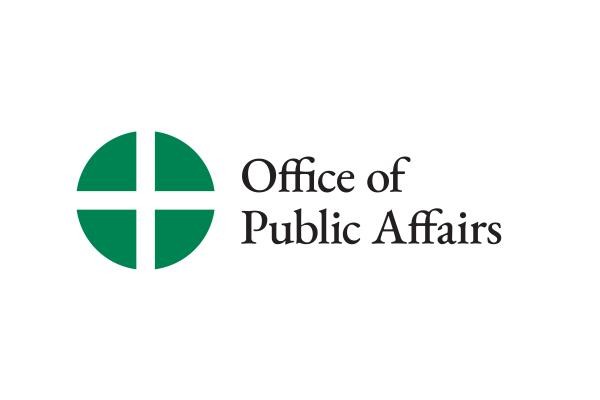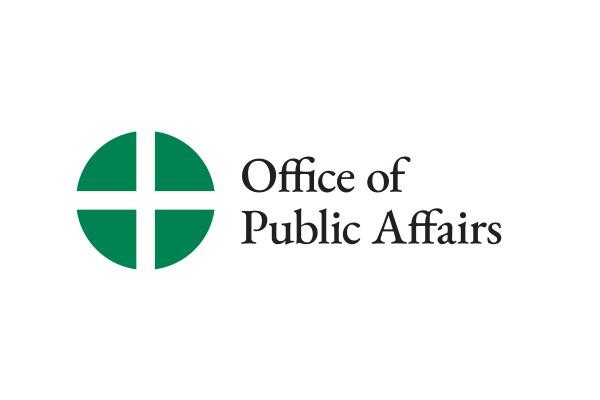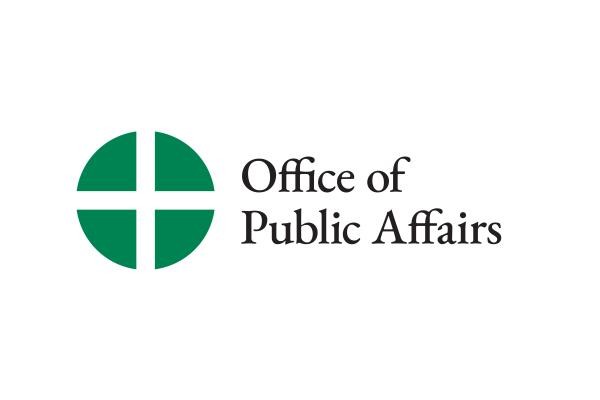Lutheran-Roman Catholic Dialogue Continues 'Hope Of Eternal Life' Theme
WASHINGTON (April 16, 2007)— The U.S. Lutheran-Roman Catholic Dialogue in Round XI met March 15-18 at Lutheran Theological Southern Seminary, Columbia, S.C., for its fourth meeting to discuss "The Hope of Eternal Life.
WASHINGTON (April 16, 2007)— The U.S. Lutheran-Roman Catholic Dialogue in Round XI met March 15-18 at Lutheran Theological Southern Seminary, Columbia, S.C., for its fourth meeting to discuss "The Hope of Eternal Life."� The Lutheran and Roman Catholic co-chairs described the meeting as constructive and precise, helpful to both Christian traditions as they search for greater mutual understanding through the dialogue.
The U.S. Conference of Catholic Bishops and the Evangelical Lutheran Church in America (ELCA) chose the topic at the end of Round X in 2004, to examine issues related to the Christian's life beyond death.
The conversation stems from principles of life-after-death developed in the "Joint Declaration on the Doctrine of Justification," which the Lutheran World Federation and the Catholic Church signed Oct. 31, 1999, in Augsburg, Germany. Dialogue members are considering such issues as purgatory, indulgences, and masses and prayers for the dead.
The Most Rev. Richard J. Sklba, auxiliary bishop of the Roman Catholic Archdiocese of Milwaukee, and the Rev. Lowell G. Almen, ELCA secretary, serve as co-chairs of the U.S. dialogue.� In addition to members of the ELCA and the Roman Catholic Church, the dialogue includes two participants from the Lutheran Church-Missouri Synod.
"The most recent meeting of the dialogue represented another constructive step in exploring the topic, 'The Hope of Eternal Life,' from Lutheran and Roman Catholic perspectives," Reverend Almen said.� "Members of the team in this meeting undertook the initial development of an outline that will guide further discussion and the possible content of a report to the churches."
The "long road" of ecumenical dialogue requires untiring, ongoing commitment, he said, adding that much work remains for present dialogue team members and for those who will follow. "Each small step for greater mutual understanding is important, however, as we strive for salutary ways to reflect more clearly the unity that we have been granted as baptized sisters and brothers in Christ," he added.
"The careful precision brought to this past meeting of the dialogue by the members of each delegation and their knowledge of history have been a great blessing for all of us," Bishop Sklba said. "Simply tracing the unfolding practices which have marked our respective Lutheran or Catholic prayers on the occasion of the death of a believer has brought light to our conversation."
"While Catholics might place great emphasis on our communal membership in the body of Christ, the Church, we both trust in God's saving mercy in Christ," Bishop Sklba said.
"This most recent meeting of Round 11 makes evident one of the key convergences of this dialogue: the believer's communion with Christ, and with all our brothers and sisters who are in Christ, cannot be wholly severed by death," noted Father James Massa, Executive Director of the Secretariat for Ecumenical and Interreligious Affairs of the USCCB. "The solution to our confessional differences on interim states like purgatory depends to a large degree on deepening our grasp of the common Christian profession of the 'communion of saints'", added Father Massa.
Exploring "popular devotion and piety" of each tradition continues to be helpful in the search for mutual understanding and reconciliation, he said.� "Church dividing issues seem fewer in areas under study in Round XI than anticipated," Bishop Sklba added.
Dialogue participants presented and discussed several reports and papers in their most recent meeting: Dr. Margaret O'Gara, faculty of theology, University of St. Michael's College, Toronto, and the Rev. Jared Wicks, S.J. Jesuit community, John Carroll University, University Heights, Ohio, discussed the possible contents of the Lutheran-Roman Catholic International Commission Report, "The Apostolicity of the Church."�Father Wicks also presented a paper on "Patristic Witnesses to Christ's Saving Descent to the Dead."
The Rev. George Tavard A.A., emeritus professor of theology, Brighton, Mass., presented a paper on "The Intermediate State in Byzantine Orthodoxy". Brother Jeffrey Gros F.S.C., professor of church history, Memphis Theological Seminary, Memphis, Tenn., led a discussion of Pope Paul VI's Apostolic Constitution, "Indulgentiarum Doctrina" (1967), "The Directory on Popular Piety and the Liturgy," from the Roman Congregation for Divine Worship and the Discipline of the Sacraments (2001), and the statement from the United States Catholic Bishops' Committee on Doctrine, "Popular Devotional Practices" (2003).� The Rev. Theodore W. Asta, associate to the bishop, ELCA New England Synod, Worcester, Mass., led the Lutheran response to the directory.
Dr. David S. Yeago, Lutheran Theological Southern Seminary, presented "Sanctification and Purification in Lutheran Theology". Dr. Michael J. Root, ELCA associate in ministry, professor of systematic theology and dean, Lutheran Theological Southern Seminary, and Sister Susan K. Wood S.C.L., Department of Theology, Marquette University, Milwaukee, led a public forum and discussion about the dialogue at Lutheran Theological Southern Seminary
The Rev. Cheryl M. Peterson, assistant professor of systematic theology, Trinity Lutheran Seminary, Columbus, Ohio, presented a paper on "Communal Eschatology and the Communion of Saints".
The Rev. Winston D. Persaud, Wartburg Theological Seminary, Dubuque, Iowa, presented a paper on a "Summary of Round VIII on How We Understand Prayer for Other People".
Dialogue participants attended a Roman Catholic liturgy at St. Joseph Catholic Church and a Lutheran liturgy at Ebenezer Lutheran Church, both in Columbia.� The next meeting of the dialogue is planned for Oct. 11-14, 2007, at St. Paul College, Washington, D.C.



